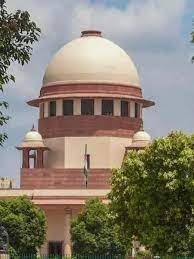The state of Tripura has informed the Supreme Court of its compliance with the 2006 verdict on police reforms, which mandates changes in the policing system to ensure autonomy, professionalism, and accountability. The Chief Secretary of Tripura conveyed this development in a report to the apex court. In line with the reforms, the state has now initiated the process for the appointment of the Director General of Police (DGP), a crucial step in meeting the Supreme Court’s requirements.
The DGP position is a central part of the reforms designed to establish an independent and efficient police force, free from political influence. As part of the 2006 guidelines, the appointment of the DGP must be made by a committee rather than by the state government alone. This process aims to ensure transparency, fairness, and accountability in law enforcement leadership.
Tripura’s action comes after several years of delay in implementing these guidelines, with the state government now taking significant steps to align itself with the court’s mandate. The current state of the police force has long been a subject of scrutiny. Many stakeholders, including local residents and political leaders, have expressed concerns over the lack of a clear and transparent process for the appointment of top police officials. By complying with the Supreme Court’s directives, the state government seeks to address these issues and improve the police force’s efficiency and effectiveness.
The process to appoint a new DGP is underway, with Tripura actively working towards ensuring that the procedure follows the rules laid out by the court. The Chief Secretary of Tripura confirmed that the government has set in motion the steps required for a transparent and merit-based appointment. The state has emphasized that it is committed to making the necessary changes to bring its policing system in line with the national standards prescribed by the court.
Despite these steps forward, the state’s compliance with the police reforms has not been without challenges. An NGO has raised questions regarding Tripura’s adherence to certain procedures mandated by the Supreme Court. The group has pointed out that the state may not have fully implemented all aspects of the reforms, especially with respect to the autonomy of police investigations and the establishment of independent oversight bodies.
The NGO’s concerns are not unfounded, as various states across India have struggled with implementing police reforms in their entirety. While many states have taken steps to address the issue, significant challenges remain in ensuring that police officers, particularly at senior levels, are free from political interference and have the autonomy to perform their duties without undue influence. The Tripura government will need to address these concerns to ensure that the police reforms are not just a formality but are effectively integrated into the policing system.
The NGO’s intervention highlights the ongoing tension between the government’s efforts to comply with judicial orders and the challenges faced on the ground in implementing reforms. While the state has made some progress in the appointment of a new DGP, further measures will be necessary to meet the broader objectives of the 2006 police reforms verdict.
The Supreme Court’s original judgment in 2006 was a landmark ruling, aimed at revamping the police system in India. It laid down comprehensive guidelines on various aspects of police functioning, including the structure of the police force, recruitment, promotions, accountability, and police autonomy. Over the years, several states have made strides in fulfilling these requirements, but the implementation has been inconsistent.
For Tripura, this process marks an important step towards modernizing its police force. By following the guidelines, the state aims to instill greater professionalism and transparency in the police system. This will not only help improve the functioning of law enforcement but also boost public confidence in the state’s policing system.
As the appointment process for the new DGP progresses, the government of Tripura will have to ensure that all other aspects of the police reforms are fully adhered to. This will include setting up mechanisms for independent oversight, ensuring the proper training of police personnel, and addressing any concerns about political interference.
Ultimately, the successful implementation of these reforms will be a significant achievement for Tripura. It will demonstrate the state’s commitment to strengthening its police force and ensuring that law enforcement in the state operates with greater efficiency and accountability. The coming months will be crucial as the state works to finalize the appointment of the new DGP and continues its efforts to align with the Supreme Court’s vision for police reforms.


